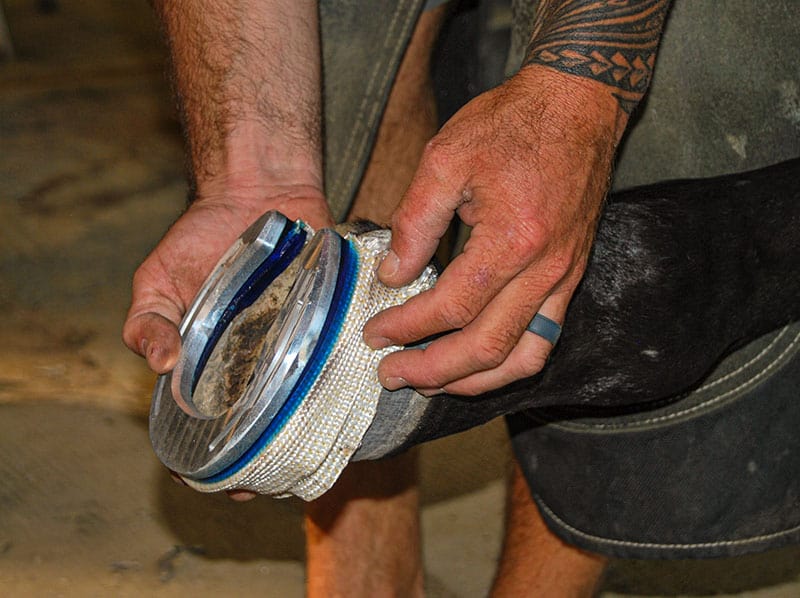
Winter Horse Hoof Care: It’s a Team Effort
Keep your horse sound and moving safely this winter with these smart hoof care practices.

Keep your horse sound and moving safely this winter with these smart hoof care practices.

Learn how smart trimming and shoeing techniques can help arthritic horses.

Cadaver hoof study confirms expectation that heart-bar shoes can reduce coffin bone motion in horses with laminitis.

8 important tasks to check off your list before the colder weather arrives.

These tips can provide an interim solution to dealing with a loose shoe while you wait for the farrier.

Learn about the best trimming and shoeing practices to ensure your horse stays sound while traveling the trails.

Researchers reported thermography showed lower temperatures in the heels and toes of horses wearing egg bar shoes or wedge pads; the findings remain inconclusive.

Researchers, veterinarians, and farriers discuss the barefoot sport horse trend.

Snow and ice during winter can cause footing problems for horses, especially those called upon to do something other than loaf in the pasture or paddock.

Going barefoot can benefit many horses, especially during the cold months when snow can pack onto steel. But pulling shoes requires planning to ensure horses’ continued comfort.

Dr. Scott Morrison describes the issues low heels can cause and the mechanical tools farriers and veterinarians can use to address them.

Meet Tokyo Olympic Head Farrier Ben Benson of Great Britain, and learn what it takes to keep high-performance horses shod during the Games.

Today’s hoof protection options include a variety of glue-on shoes, hoof boots, and even orthotics. Learn about the pros and cons of each.

Lame horse? Advanced diagnostic and management strategies for navicular syndrome have improved long-term outcomes.

Researchers observed horses taking more steps and spending more time in a relaxed position after their hoof care appointments.

Does your horse have thin soles? Here’s how to manage his feet to help keep him sound.
Stay on top of the most recent Horse Health news with
"*" indicates required fields